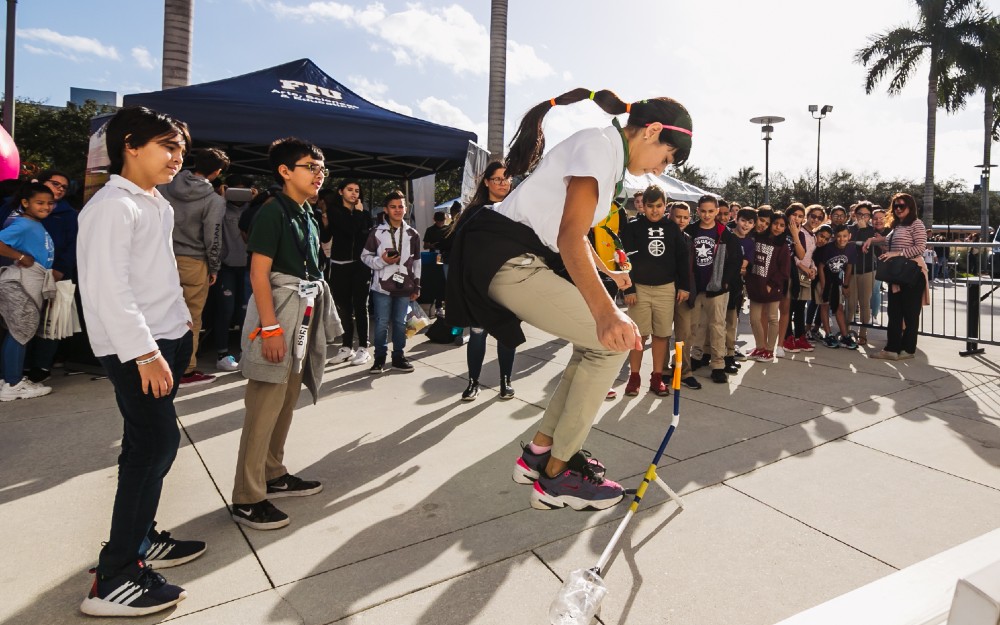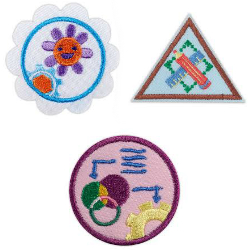Physics Lab
Any machine's big-picture success hinges on each individual piece of its physics puzzle.
Engineer air-propelled rockets using key tenets of physics such as lift, drag, thrust and gravity. Launch each model to see which goes the farthest/highest. Then as a team discuss individual successes and areas of opportunity.

Reserve This Program
Fill out our form to begin your reservation. Lab experiences last 60 minutes. Each session accommodates up to 30 individuals. Experiences are primarily offered during core hours of 10 a.m. to 3 p.m.
Virtual
- Offered Monday–Friday
- Requires a strong internet connection
- $250 for first virtual lab; 10% each additional virtual lab of the same theme on the same day
In-Person
- Primarily offered on Tuesdays, Wednesdays and Thursdays
- Hosted at your site; requires a classroom, library or other quiet setting
- $300 for first in-person lab; 10% off each additional lab of the same theme on the same day
Requests for alternate days or times will be considered. Within 48 hours after you submit your request, an Education Outreach team member will contact you to discuss your proposed itinerary. Once everything is reviewed and set, the invoice will be sent.
Alignments
Check out how our program aligns to Florida Department of Education and Scout benchmarks:
More to Explore
Want to get more from your adventures?
Combine labs, demos and field trips to reinforce learning and fun.
- Energy Matters – Start your flight here to understand the basics of matter and how they interact with each other which is a key foundation to studying the movement of matter.
- Discover Your Universe Field Trip – All objects in our known universe are governed by physics including the astronomical phenomena our researchers study thanks to the Stocker AstroScience, home of the only research-grade telescope in South Florida.
